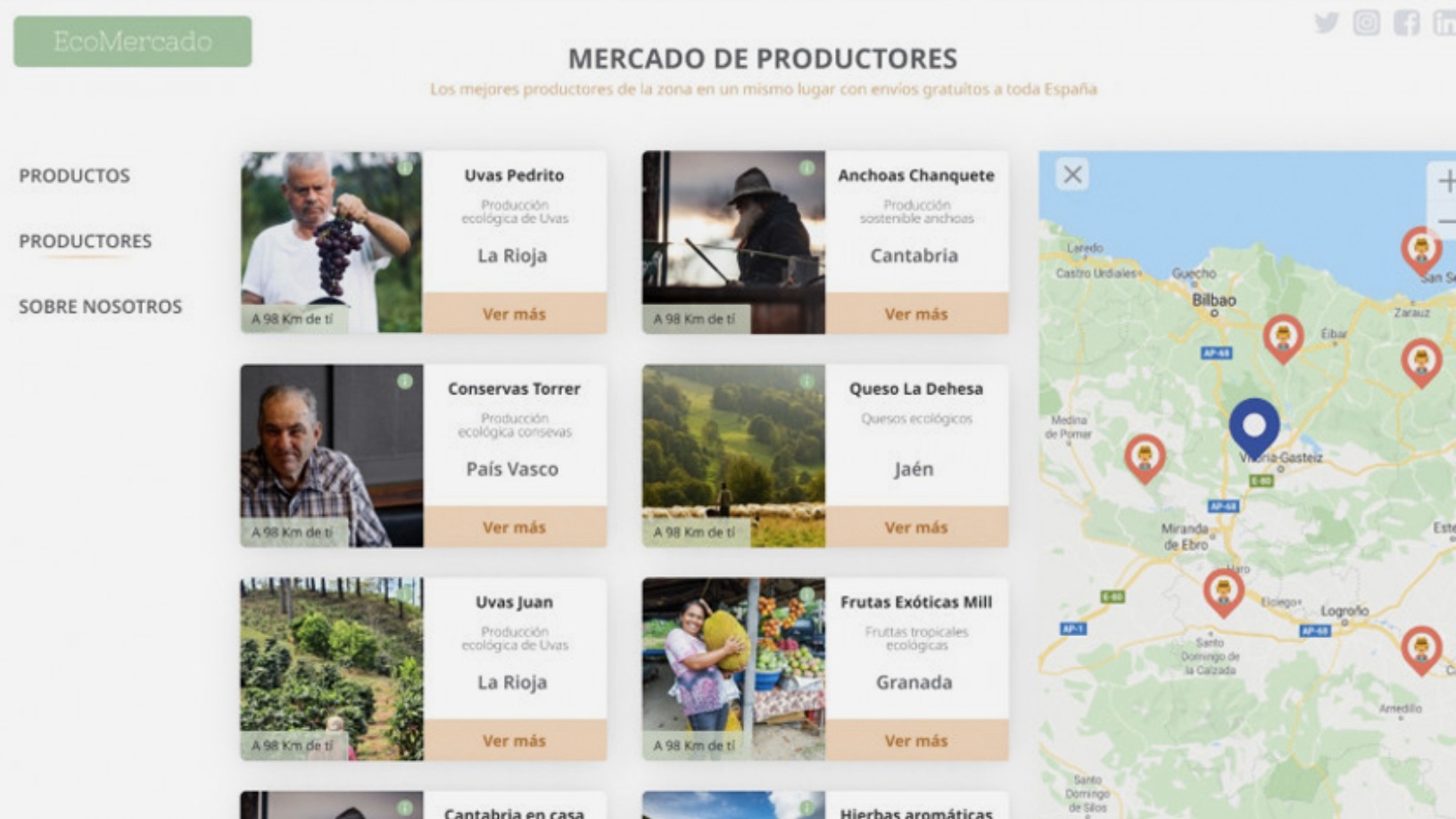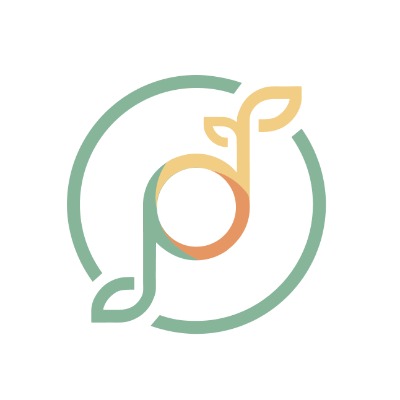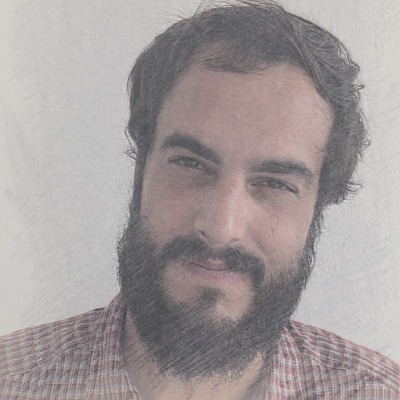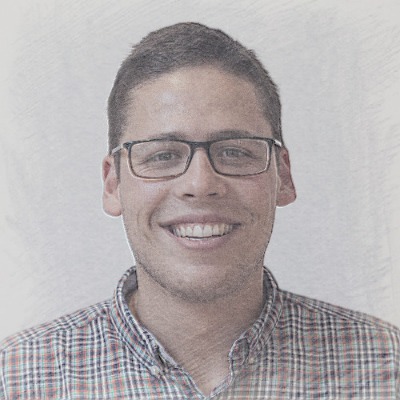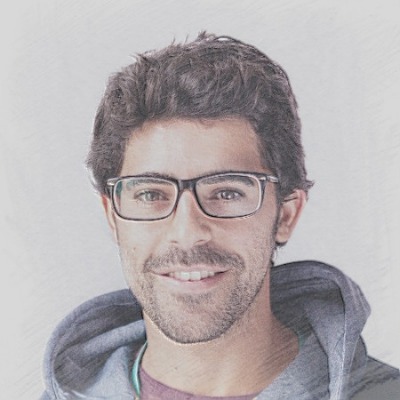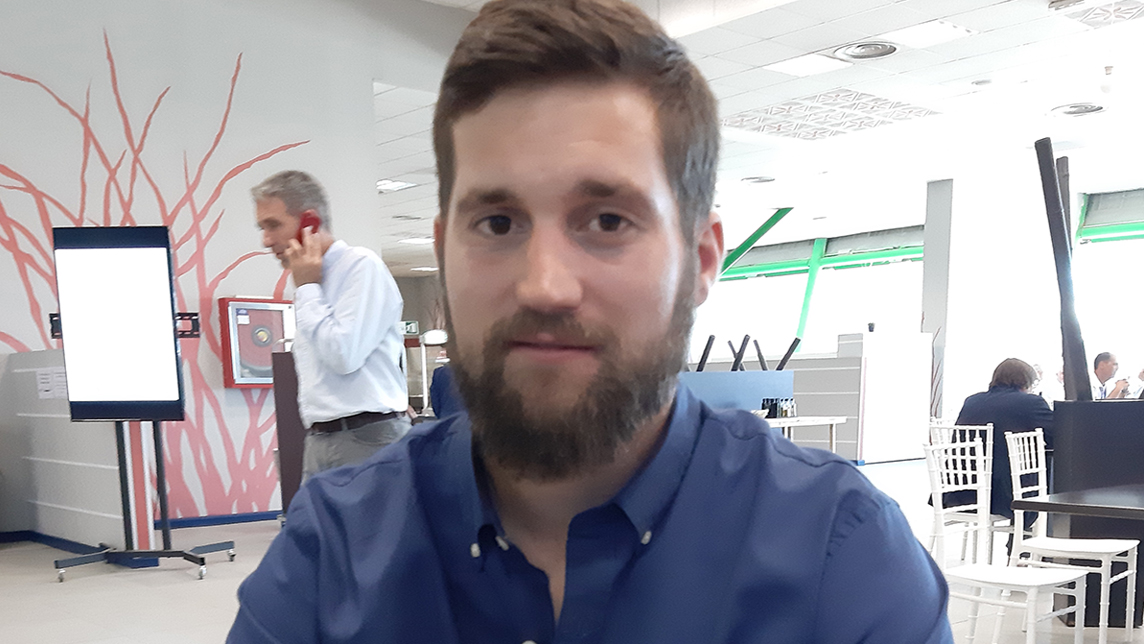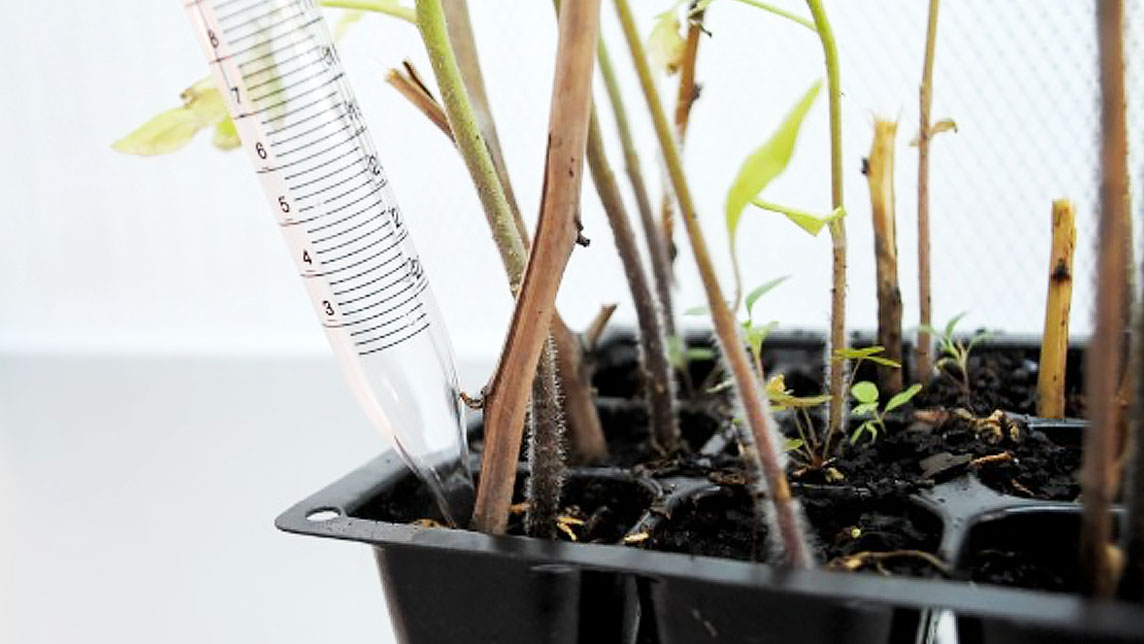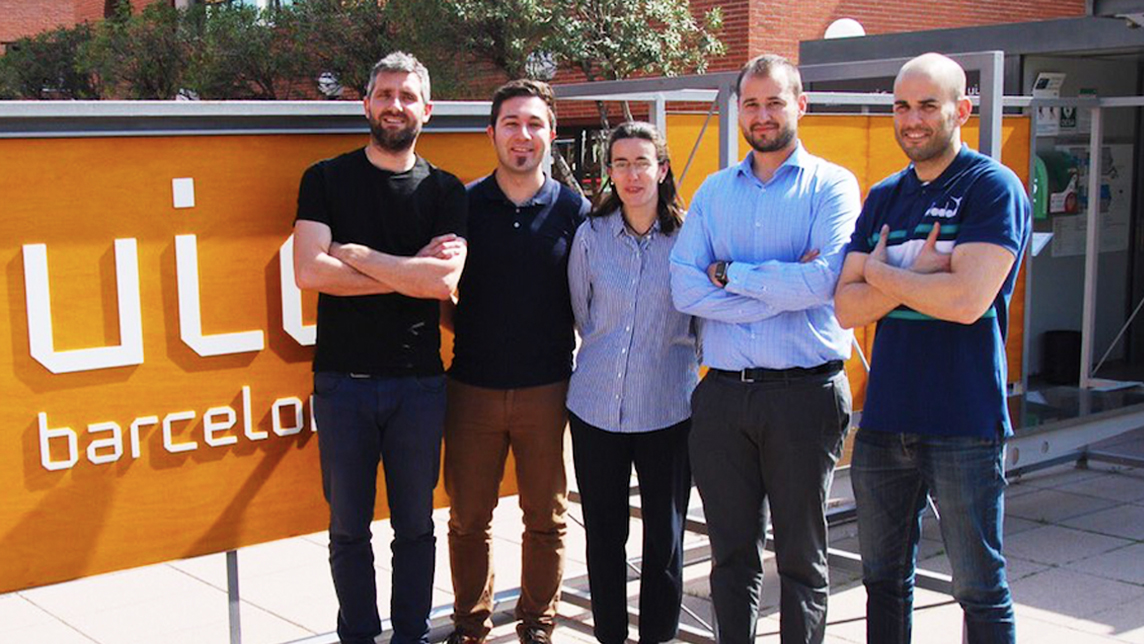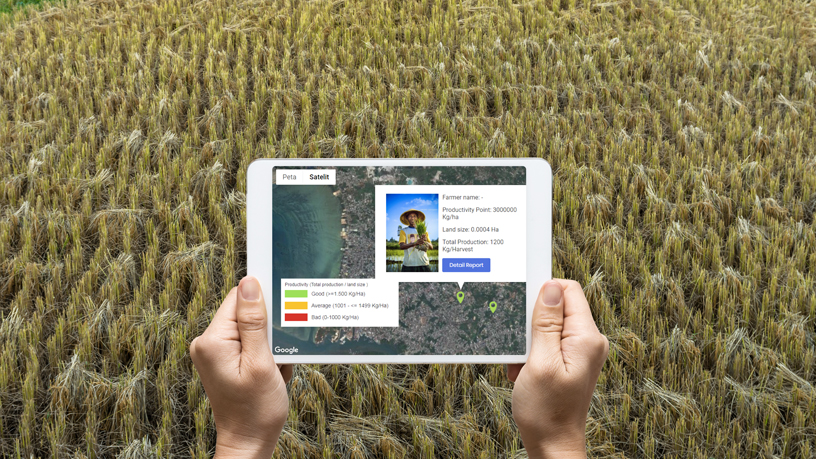The problem of food waste is a well-documented but still unresolved issue across the developed world, including in the fast-growing organic food sector. At the same time, two-thirds of the agricultural output come from small-scale producers selling in a fragmented market and with limited resources to secure the best prices. Their unsold produce often goes to waste, also because of inefficient distribution channels and cheaper foreign imports, resulting in many smallholdings needing government subsidies yearly to stay afloat.
These twin problems of limited market access and resulting food waste were precisely the issues that led business graduate Alejandro Wonenburger García and his four university friends to co-found agrifood startup Plant on Demand (POD) in 2018.
In an interview with CompassList after the Smart Agrifood Summit in Malaga, where POD had pitched in the startup competition segment, Wonenburger said that POD’s mission is to help small-scale organic farmers boost their income by selling directly to customers as locally as possible.
After extensive trials with farmers based in different regions in Spain, POD’s marketplace went live in the summer, amid the Covid-19 pandemic when global food supply chains and logistics were severely disrupted by travel restrictions worldwide. Buying local became the “new normal.”
This, Wonenburger believes, is something that should stay and be promoted as part of a society’s efforts to reduce its carbon footprint. Consumers, the POD chief commercial officer said, should be buying fresh seasonal produce from close by, instead of consuming mangos or even bananas in the European winter.
This interview has been edited for length and clarity.
How did the co-founding team set up POD without any agricultural experience?
I was studying in Finland and the Netherlands for a double degree in international business. My thesis involved doing extensive research on the challenges faced by small agents in the agrifood sector in Spain to meet EU requirements for sustainable production and direct sales. I found that there were major deficiencies in both, making it really difficult for the Spanish small-scale producers to compete in the market. Many were also organic farmers. The problem was exacerbated by the lack of digitization in small-scale organic farming.
POD, the fresh food marketplace, was formed in 2018 to help small-scale organic farmers sell directly to local consumers and reduce wastage. By early 2019, the co-founding team of engineering and IT graduates had developed POD into a commercially viable agrifood marketplace for local organic farmers.
What inspired you to turn a university project into a mission to create “paradigm shifts the world needs for humans and the planet to thrive together”?
It came from life experience. Some of us grew up close to the countryside and were connected from a young age to the reality of small-scale farmers. A co-founder has a grandmother who owns a little piece of land on the tropical coast of Granada, growing everything from avocados to passion fruit on a small-scale. Every year, the family-run farm could not sell or use up all of their produce, which ended up being wasted. I, too, grew up in the countryside of Granada, surrounded by asparagus farmers. They also had to throw away the surplus when they couldn’t sell everything to their usual customers.
A lot of food is thrown away because farmers cannot find a way to sell their surplus produce to other people who want them. Food should not be wasted just because the farmers don't have the tools to sell the products, or because consumers don't have access to the products of these farmers. People like to buy directly from the farmers, or buy from suppliers close by to reduce their carbon footprints. These are the factors that inspired us to create POD.
What is the purpose of developing the new software PODX?
We’re building the foundation for PODX now. It will be used to completely digitalize the production of food. Every agent in the value chain will have digital tools and their data will be stored in the cloud. Production data kept in a farmer's notebook is of no use to society, but production data stored in a cloud application can be of great help in the future. This essential digitalization of small agents in the food supply chain is actually a job that the government should be doing because agricultural data is so important for planning food security.
We will store the production data, and it's important to say that we do not own the data, the farmers own their data. This will let us know where the farmers are, what they produce and sell, and who buys what from them. We will make sure that this data is collected in an organized and structured way so that they can have access to their own data whenever they want and use it to improve and develop their business.
The objective of PODX is to increase collaboration and avoid competition, a main cause of food waste. For example, 50 farmers in Catalonia are planting tomatoes at the same time because they think they're going to make money out of it. But suddenly they are flooding the market with tomatoes, making prices go down. They will then try to be profitable by not selling the product, or reduce the supply, to push the price of tomatoes up.
PODX will help to prevent this type of scenario from happening by using prescriptive analytics to help farmers grow the right quantities and become more productive.
How will you use PODX algorithms and IoT devices to make farming more productive?
PODX will also provide farmers with prescriptions or prescriptive analytics. We used to say predictive, but we’ve realized that this is rather unrealistic. We should talk instead about prescriptions, or recommendations, based on what farmers could be planting to ensure that they find a market for their produce.
Other factors considered for crop recommendations include suitable soil conditions and site locations that will result in high-quality produce. Big data will also be used to ensure that local farmers do not compete with neighboring farmers selling the same type of produce.
If there are 100 farmers working 10,000 hectares of land in a certain region, and you have the data of those 100 farmers, I think that there will be sufficient data to produce algorithms to enable them to collaborate instead of competing against one another.
IoT devices can be used to measure the pH of the soil to advise farmers on the best crops suited to the chemical composition. We also want to use sensors to monitor climate conditions and detect possible diseases. Many companies are already working on this so we would like to work with partners or collaborate with others instead of developing everything in-house.
What is the plan for PODX and how will you get more farmers onboard?
We will launch when we have sufficient data and permissions from the farmers to anonymize the data, so it will be next year or 2022. Meanwhile, we can offer business intelligence services to the farmers.
A lot of our outreach work has actually been made way easier by the Covid crisis because many regions in Spain have launched initiatives to compile lists of all the small farmers to help local people to contact them to buy or sell their produce directly. The pandemic has actually pushed many businesses to become digital. Now, we can reach a higher number of people in less time and with less human resources. We do one-on-one video calls with the farmers to guide them through their first steps of using the platform until they become autonomous.
What is the experience of small-scale farmers who are not used to e-commerce?
Basically, the aim is to help small-scale farmers who lack digitization resources. Our marketplace, POD, is based on the old school farmer's catalog used to sell produce offline. In fact, it looks exactly the same and it is easy to create. A tutorial is also available. The sales process is optimized and farmers only have to send an e-mail or text message with a weblink that potential customers can click on to view the entire catalog. There are also business management tools for stock control, processing orders, invoices, deliveries and payments.
We started pilot testing with real users during the pandemic. Roughly €22,000 of produce were sold and we registered over 200 people as buyers or farmers. Now, we are at the commercial phase and are actively recruiting farmers and local businesses to use the platform. We've been working with farmers in different regions and land types in Spain.
One example is a farmer in Valencia who was able to save a day’s work each month by using POD. Before that, he was using an Excel template as a catalog to sell to his clients by WhatsApp, getting 40–50 orders weekly. Imagine having to process these orders after a long day in the field. The farmer had to manually calculate and create the orders and sales receipts before going to the fields to pick the produce for delivery. The extra work took up at least 24 hours, extremely time-consuming but is still common practice in Spain, Greece, Italy, Portugal and, often in France too.
With our software, they can anticipate orders in advance and all the paperwork is automatically generated. POD is not just their marketplace but also their virtual office assistant.
Why focus on organic farmers? Are you cutting out the middleman and making the end products cheaper?
Organic farming is a way to recover damaged flora and fauna on our planet, and for that reason, it must be the way to go. It also helps that it is an area experiencing ever-growing demand in Europe. If you buy from a small-scale producer, prices are likely to be higher than in a supermarket because the small farmers need a bigger margin for their small batch of produce.
POD is not a fintech or middleman. All the transactions take place directly between the users. I don't see middlemen as enemies. We do want the middleman to be there if they can add value to the transaction. But if they are just trading by taking a margin or a commission, and not bringing value to the whole chain, then no, we don't want them there.
We tend to work with small-scale distributors in Spain like local food stores or retailers, family-owned businesses. The retailers can create a product catalog the same way as the farmers and sell their products online; we can also build an online store for them. For the consumer, it's exactly like an online store but with a way more convenient purchasing experience because they don’t need to input a lot of personal data.
What is the business model? Is there a minimum amount of sales required?
In the future, we will offer SaaS services. The current business model is commission-based, with 3.85% earned from all sales payable by the vendors.
Prices should be kept as attractive as possible for the end-consumers, that's why we take such a small margin. As part of our go-to-market strategy, we're currently not charging farmers or small distributors any set-up fees upfront. Technology should be democratic, and they should all have access to it without taking the risk of paying €2,000 or so for an online store. That's why we work with commissions because we see ourselves as a value adder for the chain.
We work together with every one, we haven't got to a scale yet where we don't know the names of our clients. We also work to make sure that they make the most of the digital tools. If they sell and make money, we make money too. If they don't, we don't either. We are a very value-oriented company. We also believe that it is in our interest as a company and as a society to enable every kind of farmer to have access to digital tools.
So, we just require vendors to sell just one product a few months each year. We have one farmer who just sells artichokes three months a year. Although he isn’t going to give us revenue throughout the year, he can still access his account for the whole year to prepare his sales and commercial strategy in advance for the three months when he can sell his produce at a price that he's comfortable with.
Have you had any outside help, grants or funding rounds?
Because we are a co-op, we've been getting grants that support young entrepreneurs from the Government of Madrid. Recently, we participated in the EIT Food Seedbed program which has been of great help. Our mentors and coaches have helped us in strategy and given us funding opportunities from the EU to keep on building the company via EIT grants.
In November, we will present the findings of our Seedbed program for our customer discovery journey which allows us to apply for further funding. We are also now looking for private equity investment of €250,000–350,000.
Finally, what are your plans for scaling in the immediate future?
Our first aim is to gain traction in Spain with the POD marketplace. We believe we can achieve this in the next 6–8 months and we want to automate the onboarding process as much as possible. Then we will also try to scale up by partnering with other associations in Spain or with government initiatives.
We plan to go abroad and have already done a lot of work in the Greek market over the last two years. They share the same production systems in many ways and digitally they are at the same level as Spain, so that will be our next market.
Outside Europe, we have also done research in countries like Brazil where the market and opportunities are huge. Brazil is trying to jump a couple of steps at a time in tech and local governments are already putting money into digitizing their farming processes. This is really interesting because people tend to regard South American countries as less developed which is a mistake because they are pushing hard with tech efforts and trying to avoid mistakes made in Europe.
